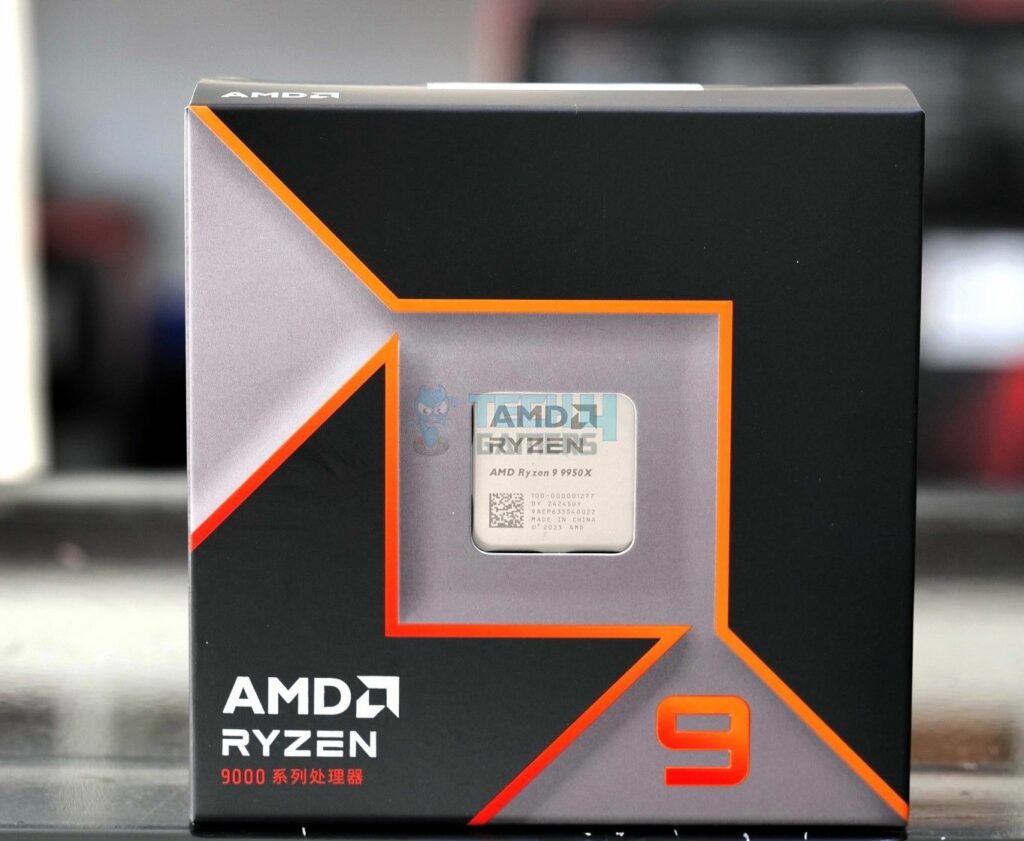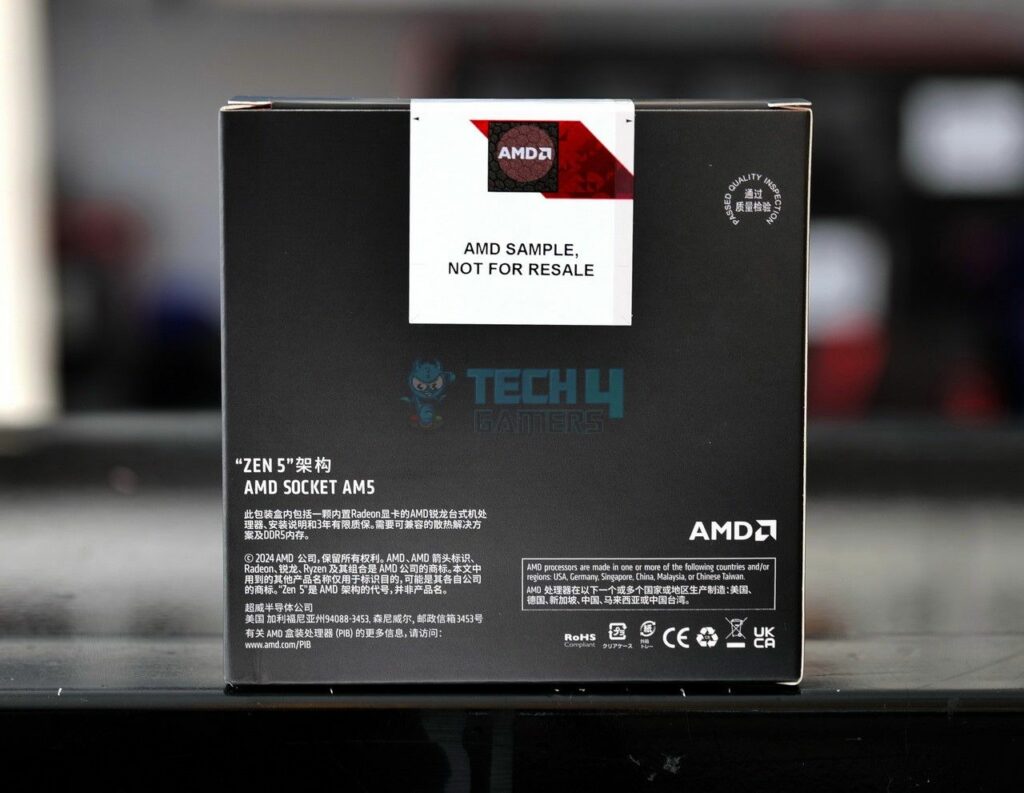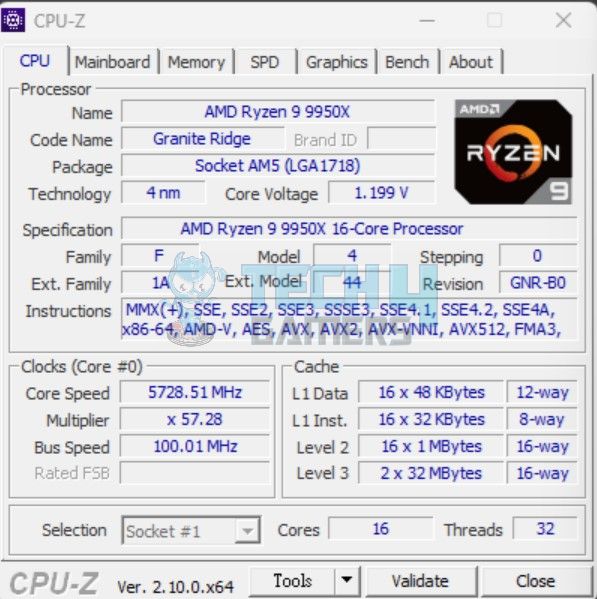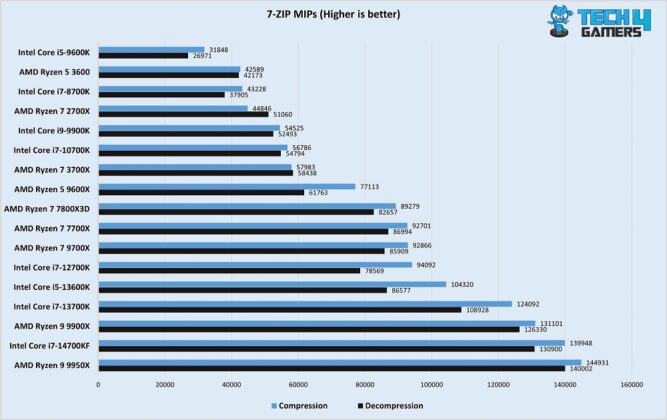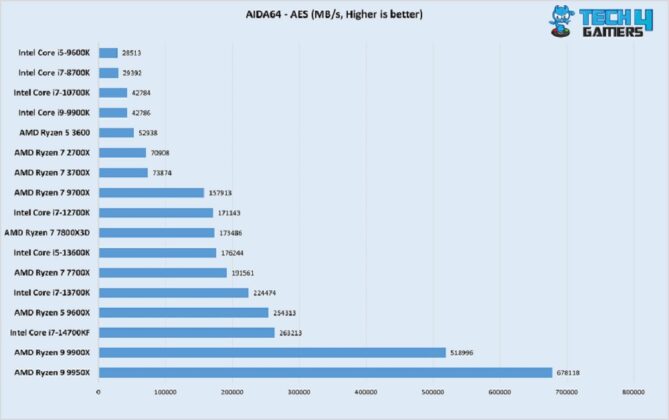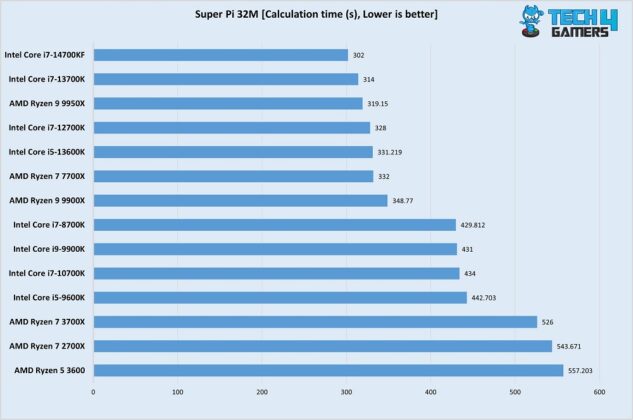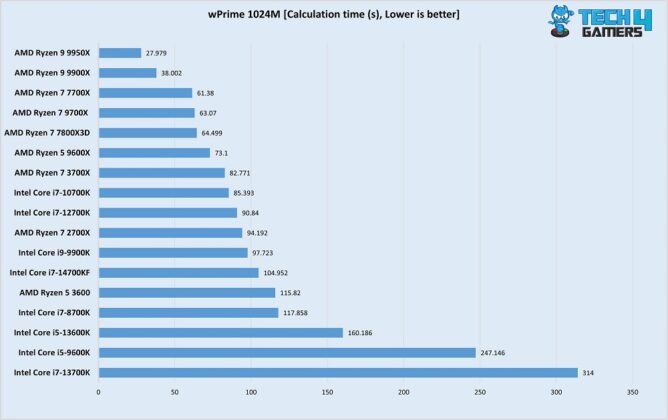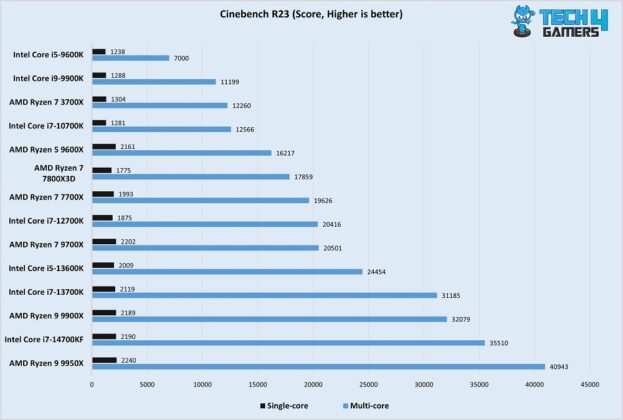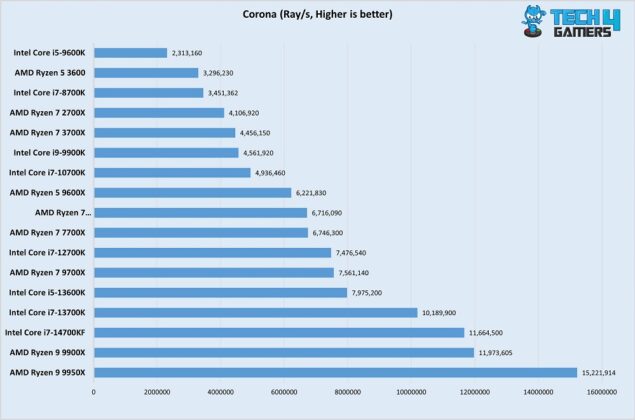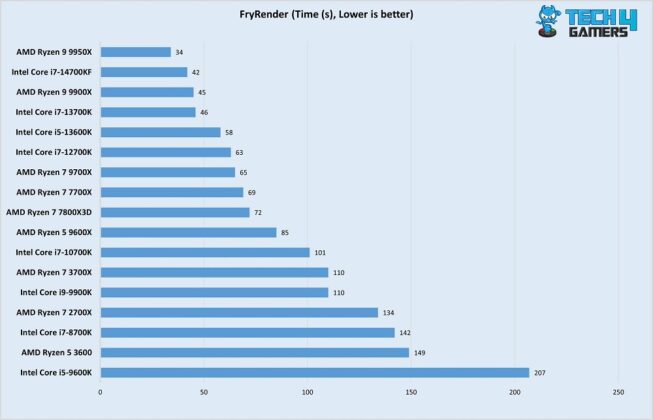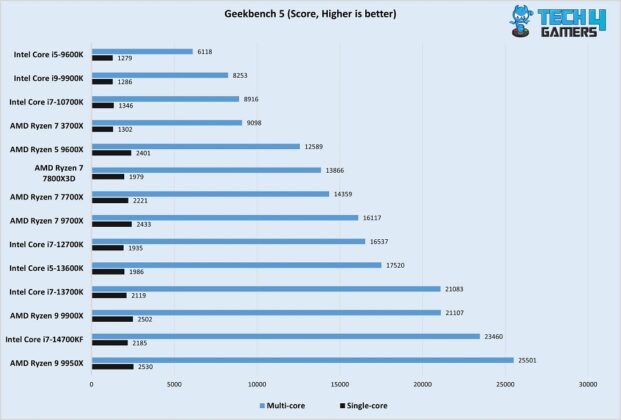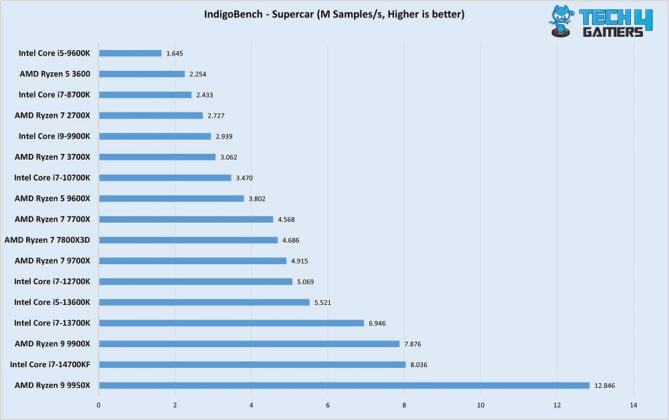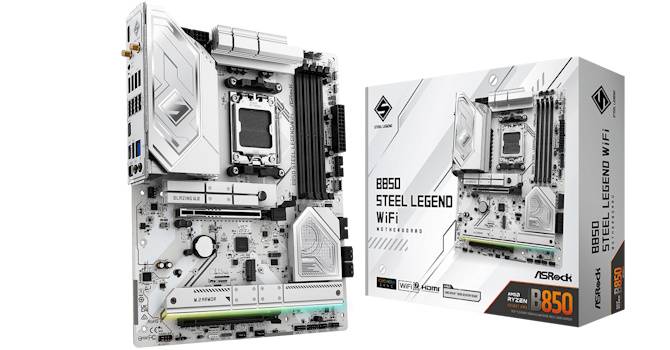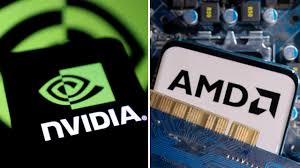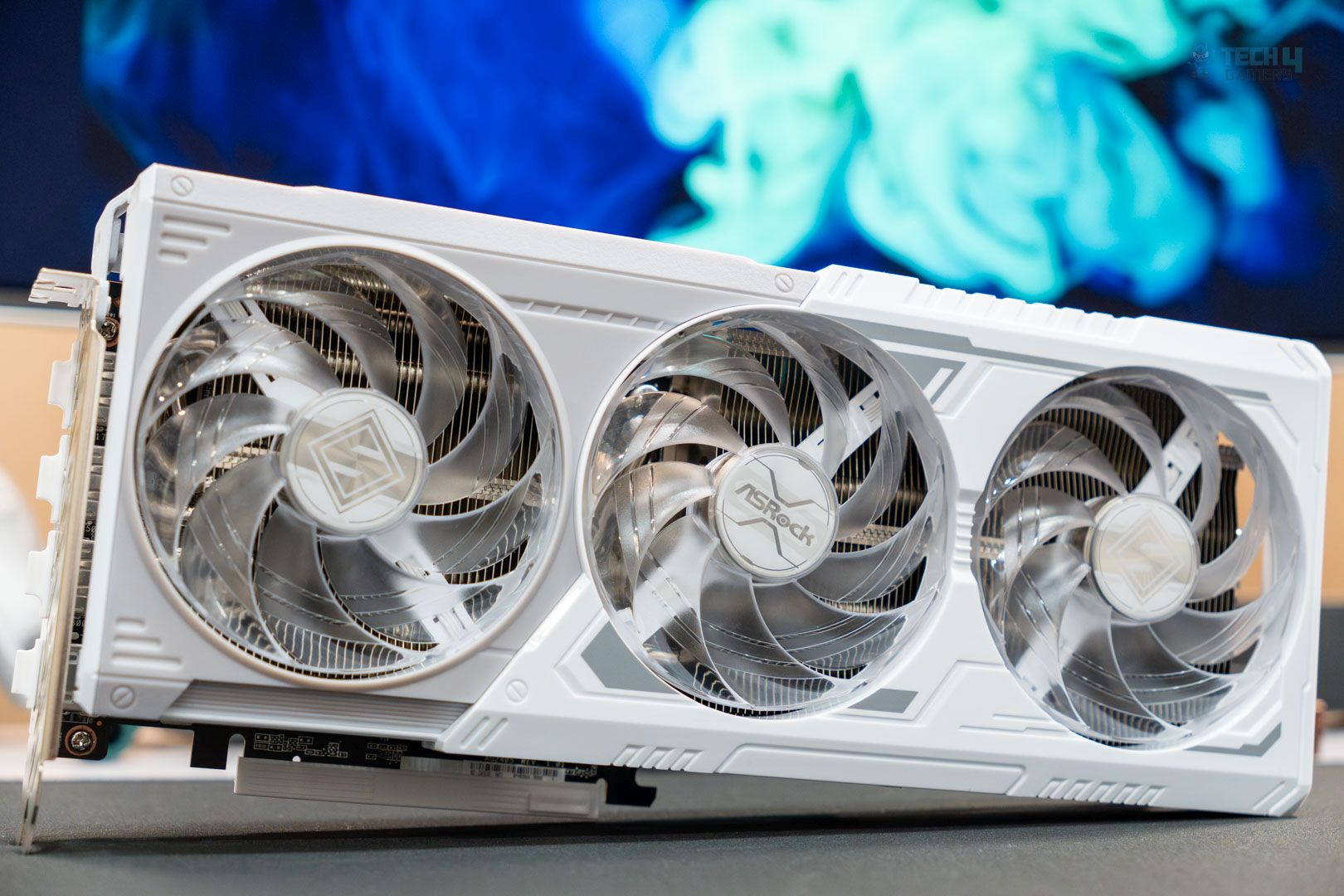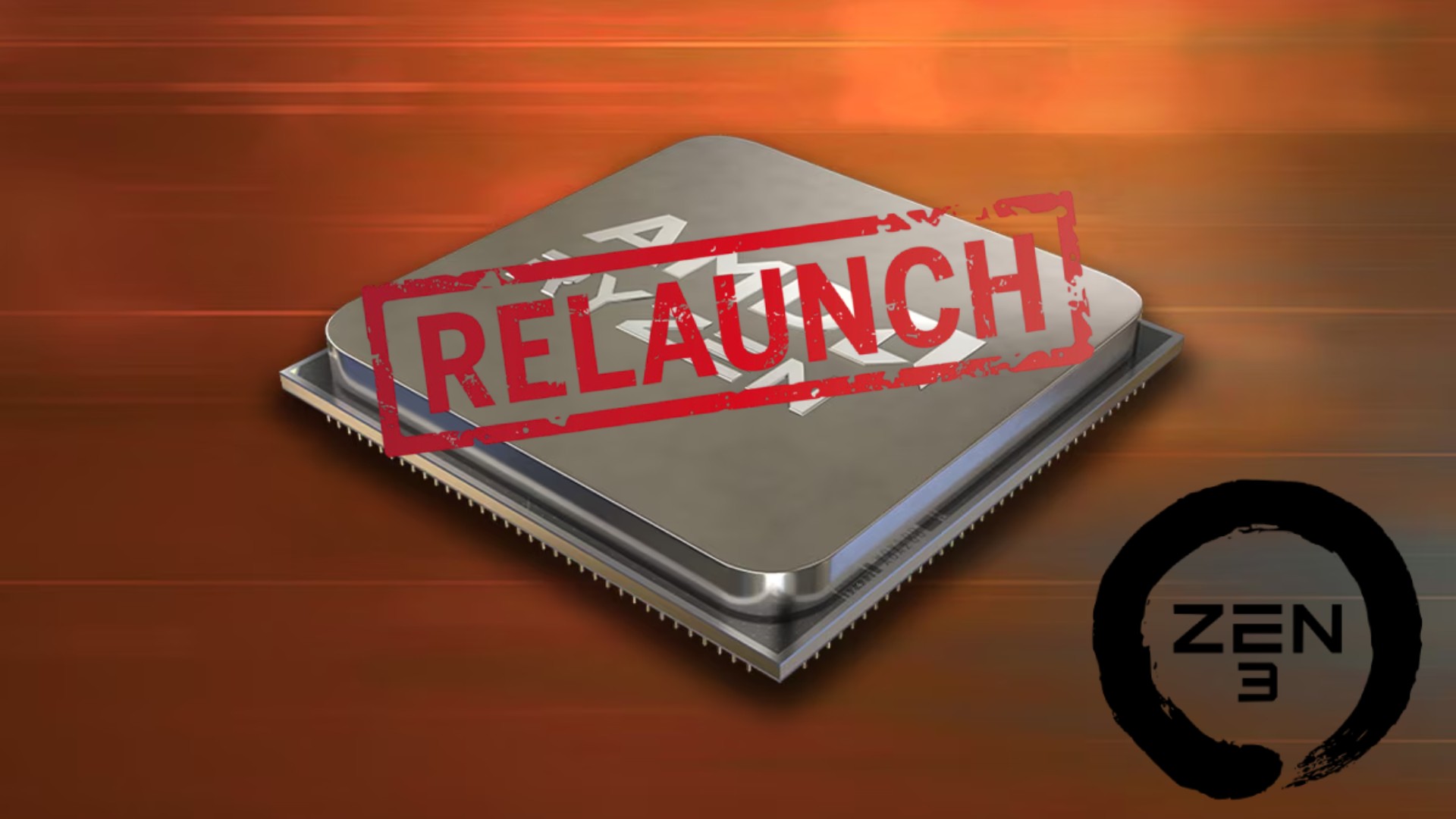Worth The Big Bucks?
Review Summary
AMD’s new flagship shows some killer performances but comes with a premium $599 price tag, which means it’s more expensive than the competing 14900K. While productivity performance is mostly on par with this Intel beast, the 1080P gaming performance falls behind, and as expected, the Ryzen 7 7800X3D still leads the gaming charts. It does, however, consume less power and runs cooler than the 14900K, so if you’re all about efficiency, it’s a good choice.
Hours Tested: 9
Overall
-
Gaming - 8/10
8/10
-
Value - 7.5/10
7.5/10
-
Productivity - 9.5/10
9.5/10
-
Efficiency - 9/10
9/10
Pros
- Single-core prowess
- Exemplary productivity performance
- Great efficiency
- AVX-512 support
Cons
- Too pricey
- Gaming performance is okay
- 14900K is better for mixed workloads
- 7800X3D is better for gaming
After reviewing the Ryzen 5 9600X, Ryzen 7 9700X, and Ryzen 9 9900X, we finally got to testing the Ryzen 9 9950X. We raised concerns about the lowered power limits of those three CPUs, but the 9950X retains the 7950X 170W rating of its predecessor. Will that help it show better gains, or are we in for a surprise? Let’s find out.
Key Takeaways
- The Ryzen 9 9950X is AMD’s flagship CPU out of the Zen 5 lineup, offering amazing productivity performance and efficiency. Its price tag ($599) is too high, though, and gaming performance could have been better.
- The Ryzen 9 9950X is ideal for you if you want no compromise on productivity performance, need AVX-512 support, and/or want good performance at relatively low power consumption.
- Don’t consider the Ryzen 9 9950X if you want the best gaming performance, your budget is tight, and/or you want the best value for your money.
See how the Ryzen 9 9950X’s specs look compared to CPUs in the price range.
| Product | Ryzen 9 9950X | Core i9-14900K | Ryzen 9 7950X3D |
|---|---|---|---|
| Manufacturer | AMD | Intel | AMD |
| Processing node | TSMC 4nm (Cores), TSMC 6nm (I/O) | Intel 7 (10nm) | TSMC 5nm (Cores), TSMC 6nm (I/O) |
| No. of cores | 16 | 24 (8P, 16E) | 16 |
| No. of threads | 32 | 32 | 32 |
| Base frequencies | 4.3 GHz | 3.2 GHz (P-cores), 2.4 GHz (E-cores) | 4.5 GHz |
| Max. turbo frequencies | 5.7 GHz | 6 GHz (P-cores), 4.4 GHz (E-cores) | 5.7 GHz |
| L1 cache | 1280 KB | 640 KB (P-cores), 1536 KB (E-cores) | 1024 KB |
| L2 cache | 12 MB | 32 MB | 16 MB |
| L3 cache | 64 MB | 36 MB | 128 MB |
| iGPU | AMD Radeon™ Graphics (2 cores) | Intel® UHD Graphics 770 (32 EUs) | AMD Radeon™ Graphics (2 cores) |
| Base power | 170W | 125W | 120W |
| Max. turbo power | – | 253W | – |
| MSRP ($) | 599 | 579 | ~587 |
As with the remaining Zen 5 CPUs (so far), we have decreased base clock speeds (by 200 MHz) and a bump in the L1 cache (1280 KB vs 1024 KB). The CPU launched at $649 ($50 less than its predecessor) and is now down to $599 following underwhelming sales numbers.
We’ve covered the best hardware to pair with the 9950X in case you’re planning on buying the chip:
Architectural Improvements
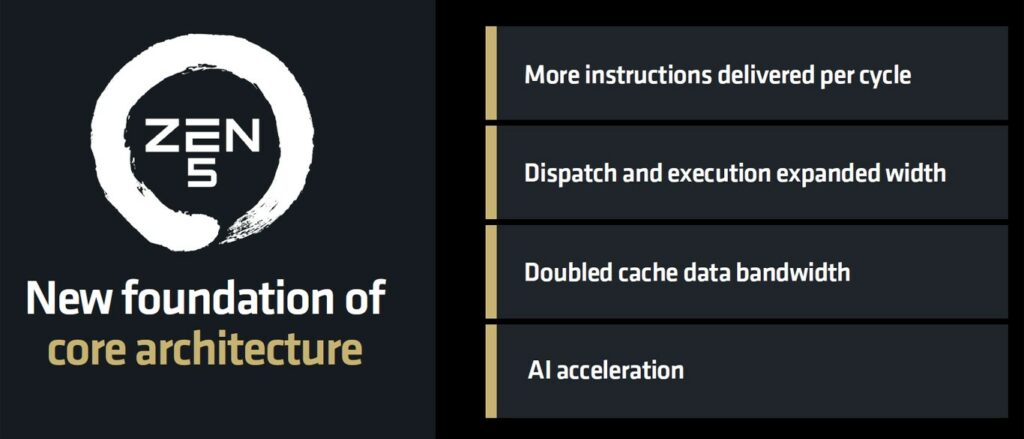
Here’s a brief overview of some key architectural tunings responsible for the 16% IPC uplift of Zen 5:
- Processing node: The Zen 5 cores are based on the TSMC 4nm node, and the overall transistor count for the chip has increased.
- Front-end: AMD’s “next-gen” branch predictor features improved accuracy and throughput. The instruction cache latency and bandwidth are enhanced, and a dual decode path is being used.
- Dispatch and Execute: Zen 5 also features a wider dispatch/retire for more bandwidth. There are 6 ALUs (vs. 4), 3 multipliers, and a unified ALU scheduler. The execution window is larger than Zen 4.
- AVX-512 support: AMD has incorporated a full 512-bit datapath for AVX-512 instead of the double-pumped 256-bit path of Zen 4. There are 6 pipelines with two-cycle latency FADD, and the number of FP instructions in flight has ultimately improved.
- Data bandwidth enhancement: Improvements have been made to the data bandwidth for the L1 cache and floating point unit at double the rate. Data prefetching has also been improved.
Platform Changes
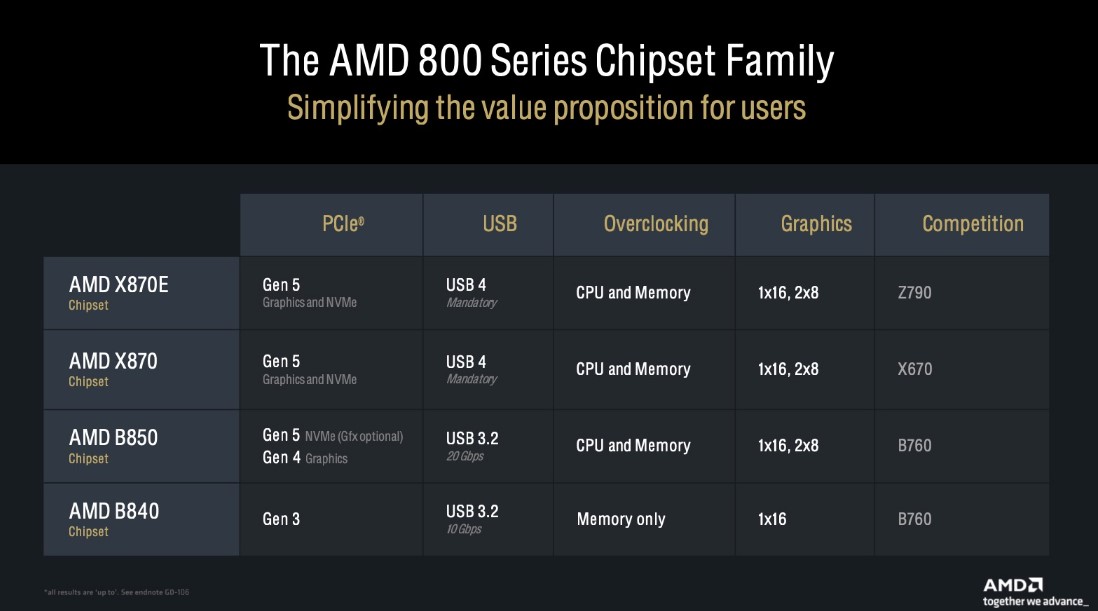
The key changes to the platform include the new AMD 800 series chipset family, which introduces us to X870E, X870, B850, and B840 chipsets. B840 resembles A620, while X870 matches B650 in specs (except for its mandatory USB 4 connection).
We also get support for DDR5-8000, JEDEC-5600 memory out of the box, and improved memory overclocking capabilities (including on-the-fly overclocking). Moreover, the new Curve Shaper feature will allow for more optimized adjustment to the V-F curve of Curve Optimizer.
Design And Unboxing
The CPU’s box follows the same design as its predecessor generation.
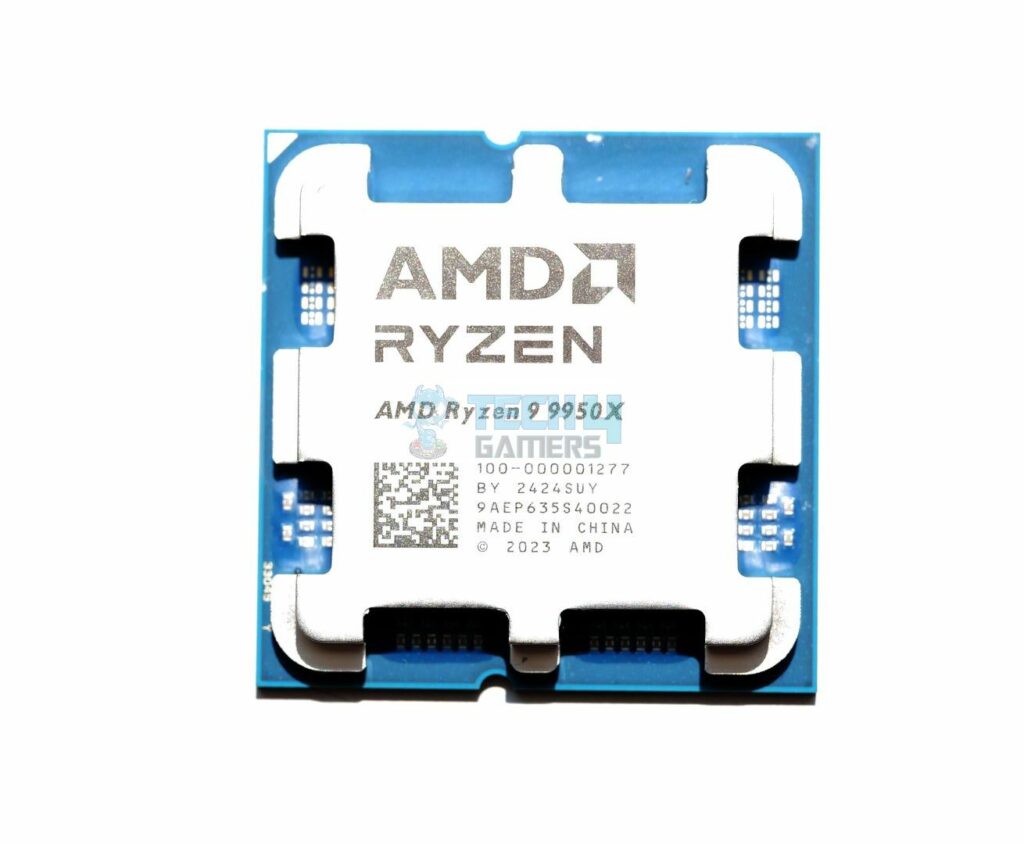
The chip design is the same as well.
Test Bench
For testing, here’s our bench:
- CPU Cooler: DeepCool Mystique 360
- Motherboard: MSI MEG X670E ACE
- GPU: MSI GeForce RTX 3090 Gaming X Trio
- Memory: 32 GB (2×16) XPG Lancer RGB DDR5 @ 6000
- Storage for OS: Western Digital SN850 Black 500GB NVMe SSD
- Storage for Software: Sabrent Rocket 4 Plus 2TB Gen4x4 NVMe SSD
- Storage for Games: Sabrent Rocket 4 Plus 4TB Gen4x4 NVMe SSD
- Power Supply: Fractal Design ION+ 2P 860W Platinum
- Operating System: Windows 11 Pro Build 22H2, Build 22621
Here’s the Ryzen 9 9950X on our test bench:
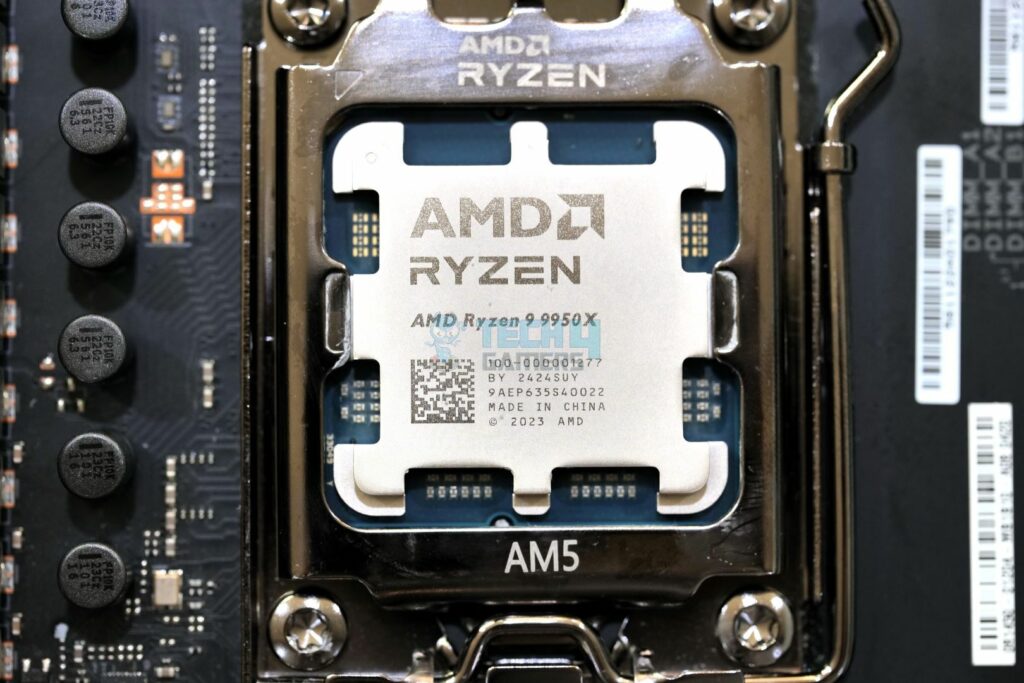
A look at the CPU-Z screenshot of the chip:
Testing Methodology
- Each test was run at the Auto/Stock settings.
- No default performance mode was enabled in the BIOS.
- EXPO was used for the memory, and we manually set the DRAM timings and voltage.
- All other voltages were left on the Auto.
- Cooling fans and pump were kept at maximum RPM.
- The GPU was run at factory settings.
- The motherboard BIOS was updated to the latest version.
- Nvidia driver version used was 517.48.
- All sensors were monitored using HWiNFO.
General Benchmarks
To start, here are the general benchmarks.
The performance in general tests was a mixed bag. In compression/decompression and Super pi, the results were good but not great. Meanwhile, the CPU showed breakthrough performances in wPrime and AIDA64 encryption.
Rendering Benchmarks
Overall, the rendering performance is excellent—just what you would expect from the 16-core, 170-watt beast. Single-core performance is top-notch, although, in Geekbench 5, its multi-core performance lead over the much cheaper Core i7-14700KF wasn’t very impressive!
Gaming Performance (1080P)
Let’s look at the gaming performance, tested at 1080P resolution and the Ultra preset (or equivalent). The list of tested games:
- Alan Wake 2
- Cyberpunk 2077
- Elder Ring
- F1 2024
- Hogwarts Legacy
- Spider-Man Remastered
- Starfield
- The Last Of Us 2
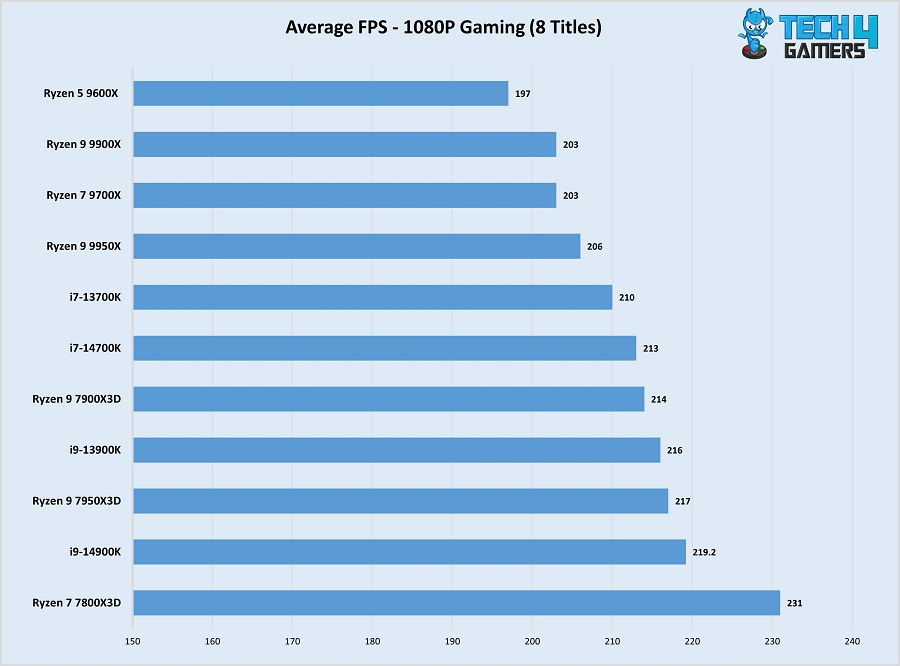
Well, the nightmare continues for Ryzen 9000. The relative gaming performance is a complete disappointment, and all the Zen 5 CPUs we’ve tested so far are sitting within a 9-FPS margin of each other in 1080P gaming. That is, a $279 CPU churning out only 9 FPS less than a $599 one.
When we tested the 9600X and 9700X, the power limits seemed to be a limitation, and removing them showed that productivity performance was indeed being held back. The Ryzen 9 9950X performs fairly well in those multi-threaded benchmarks, but gaming performance hasn’t been helped. Perhaps it has to do with Windows 11 not handling the CPU’s branch prediction very well, but this is where we’re standing right now, with the CPU in some sort of bottleneck.
Thermals and Power
Finally, a look at thermal performance and power consumption:
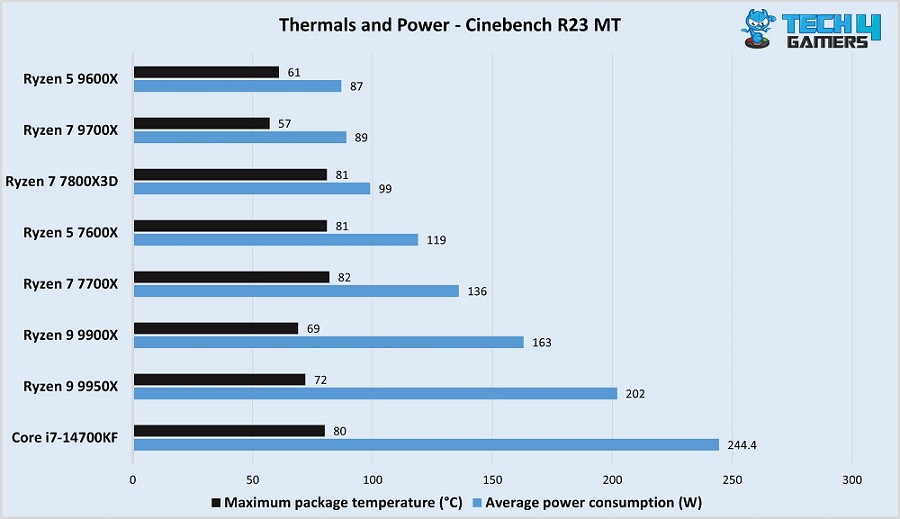
Testing the power consumption during a 30-minute Cinbench R23 multi-core test, the Ryzen 9 9950X consumed 202 watts on average, normal numbers for its 170W rating. The thermal efficiency is, again, quite impressive! It peaked at just 72C while consuming this power. Compared to the 120W 9900X, only a 3C difference.
Meanwhile, it looks even more impressive if you compare it to the 14700KF (which the 9950X beat comprehensively in Cinebench R23). The bottom line is that AMD is still killing it in the efficiency department.
Should You Buy It?
Still in confusion? Let me break it down for you.
Buy It If
✅ You’re looking for top-level productivity performance: For productivity workloads, it really doesn’t get better than the Ryzen 9 9950X.
✅ Single-core performance is important: In single-core performance, too, the Ryzen 9 9950X is one of the best CPUs on the market right now.
✅ You need AVX-512 support: The Ryzen 9 9950X is ideal for AI applications and other applications utilizing AVX-512, thanks to its native support for the instructions set.
✅ Efficiency is a priority: The Ryzen 9 9950X consumes a fair bit of power, but still much lower than the Intel chips it competes with. Moreover, it runs relatively cool despite its 170W rating.
Don’t Buy It If
❌ You need a gaming CPU: The 9950X gaming performance is nearly identical to its lower-end Ryzen 9000 brothers. For gaming, the 7800X3D will serve you best, while for a mix of gaming and productivity, I’d recommend the 14700K/14900K.
❌ Budget is limited: At $599, the pinnacle of Zen 5 is sure to put a dent in your wallet.
My Thoughts
The Ryzen 9 9950X is great, but there are better CPUs out there. It faces the same problems as its little brothers, as the gaming performance has hardly improved over its predecessor. The price (despite a $50 cut) is still too high, and Intel’s 14900K is still cheaper (albeit marginally). However, I’d still recommend it if the gaming performance was a bit better.
It is the only CPU to retain its predecessor’s TDP rating (170W) and can consume around 200 watts or more, but its thermal efficiency is superb. We had no problems taming the CPU with our DeepCool Mystique 360mm cooler, as it peaked at 72C during a full 30-minute Cinebench load. Rest assured, cooling the CPU will require a capable cooler, but not a super premium one.
Those were the talking points: productivity performance, gaming performance, price, and thermal efficiency. The 9950X nails productivity performance and thermal efficiency, but the remaining two fields, not so much. If your budget is this high, I’d recommend getting the 14900K. If you’re solely gaming, the 7800X3D will serve you far better and is much cheaper.
Thank you! Please share your positive feedback. 🔋
How could we improve this post? Please Help us. 😔
[Reviews Specialist]
Usman Saleem brings 8+ years of comprehensive PC hardware expertise to the table. His journey in the tech world has involved in-depth tech analysis and insightful PC hardware reviews, perfecting over 6+ years of dedicated work. Usman’s commitment to staying authentic and relevant in the field is underscored by many professional certifications, including a recent one in Google IT Support Specialization.
8+ years of specialized PC hardware coverage
6+ years of in-depth PC hardware analysis and reviews
Lead PC hardware expert across multiple tech journalism platforms
Certified in Google IT Support Specialization
Get In Touch: usman@tech4gamers.com


 Threads
Threads
